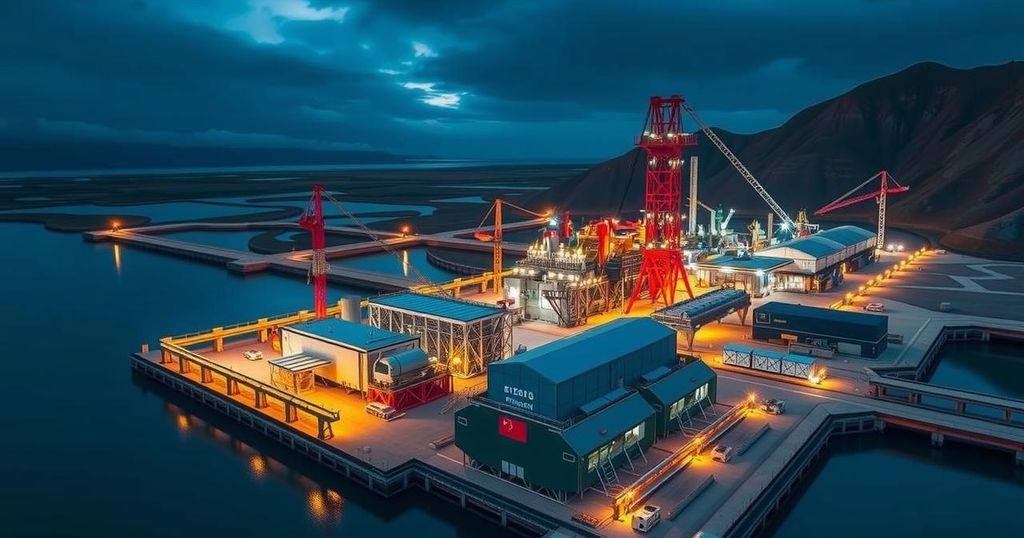Companies
ANHUI, ARCE, ASIA, AUTOMOTIVE INDUSTRY, BOLIVIA, BOLIVIA LITHIUM DEPOSITS, CBC, CHINA, CUBA, ENERGY, EUROPE, EUROPE/ASIA, EXPORT, FRANCE, HUAIBEI, LA PAZ, LIT, LONDON, LUIS ARCE, MEXICO, MINING, NORTH AMERICA, PARIS, RUSSIA, SOLAR POWER, SOUTH AMERICA, UNITED KINGDOM, URANIUM ONE GROUP, UYUNI, YLB
Jamal Walker
0 Comments
Bolivia Signs $1 Billion Lithium Production Deal with China
Bolivia has signed a $1 billion deal with China’s CBC to construct two lithium carbonate plants in the Uyuni salt flats, enhancing its lithium production capacity. President Luis Arce emphasized Bolivia’s potential role in global lithium pricing, and this agreement follows another deal with Russia’s Uranium One Group. Negotiations for a third contract with Citic Guoan Group are also underway, aiming to bolster the nation’s lithium sector further.
In a significant development for Bolivia’s burgeoning lithium industry, the nation has announced a $1 billion agreement with China’s CBC. This contract, established with a subsidiary of the world’s leading lithium battery manufacturer CATL, encompasses the construction of two lithium carbonate plants in the southwest region of the country. One plant will produce 10,000 tons annually, while the other will have a capacity of 25,000 tons and both will be located in the expansive Uyuni salt flats, recognized as a prime reservoir of lithium resources linked to electric vehicles and mobile technology.
President Luis Arce highlighted that this venture marks a pivotal step for Bolivia, potentially positioning the country as a significant influencer in the global lithium market. The announcement follows a previous agreement between the state-owned Bolivia Lithium Deposits and Russia’s Uranium One Group, which was also focused on lithium extraction in the same region. Furthermore, President Arce indicated ongoing negotiations with China’s Citic Guoan Group aimed at finalizing a third contract. These undertakings await validation from Bolivia’s legislative assembly.
In recent years, lithium has garnered attention as an essential mineral for the production of batteries, particularly in the context of the global shift toward electric vehicles. Bolivia is home to what is considered the largest lithium reserves in the world, primarily located in the Uyuni salt flats. The increased demand for lithium, primarily from the automotive and technology sectors, has encouraged Bolivia to leverage its natural resources to enhance its economic standing on the international stage while simultaneously engaging in strategic partnerships with countries such as China and Russia.
The recent agreement between Bolivia and China to develop lithium production capacity illustrates the growing importance of lithium in the global economy, especially in the electric vehicle sector. With substantial lithium reserves at its disposal, Bolivia aims to position itself as a key player in international lithium pricing and production. Concurrently, this partnership reflects broader trends in resource nationalism, where countries seek to capitalize on their natural resources while nurturing strategic alliances for technological advancement.
Original Source: jordantimes.com




Post Comment